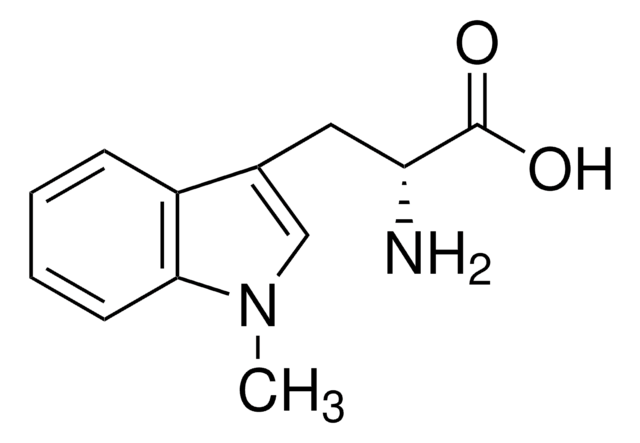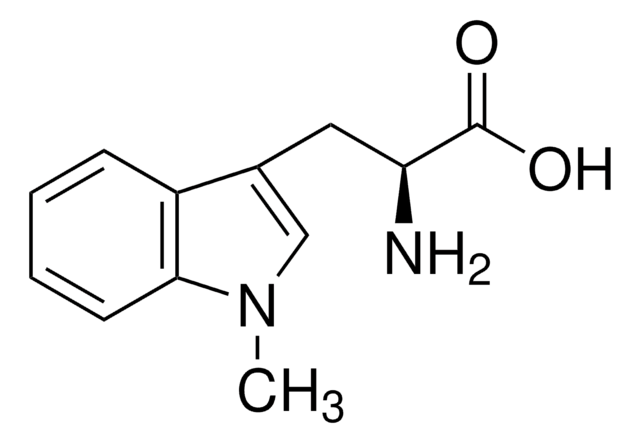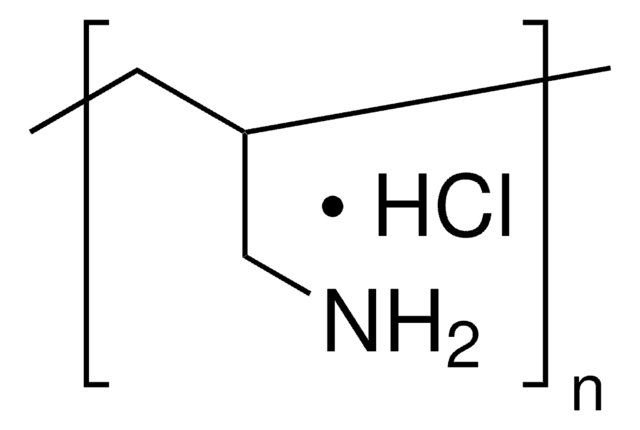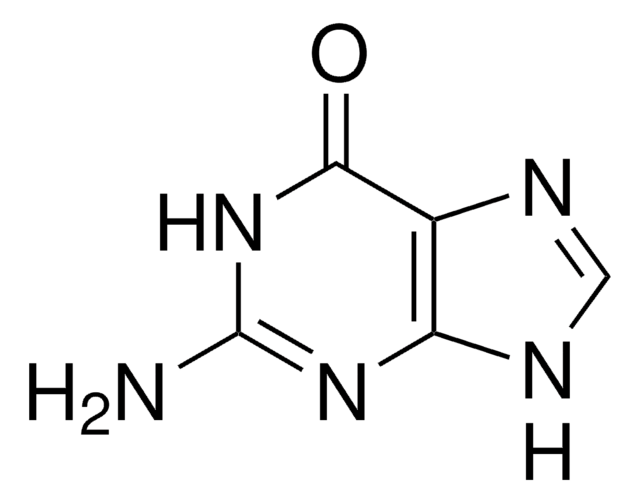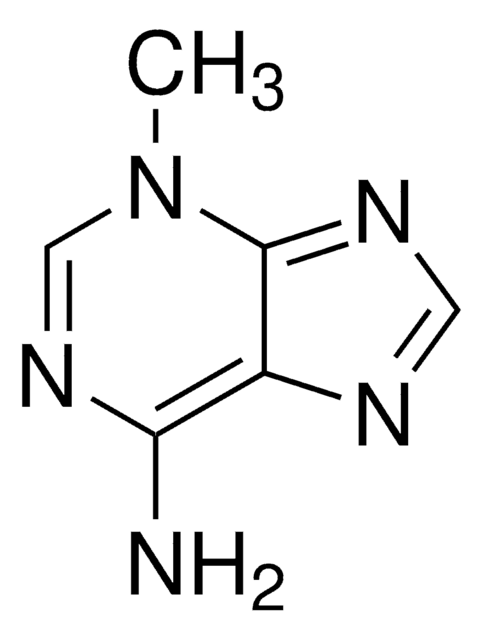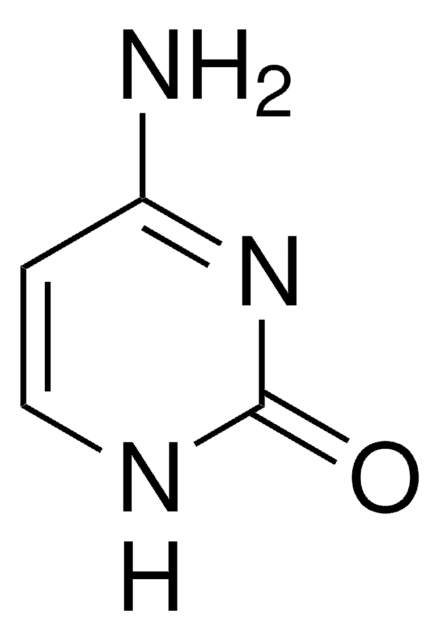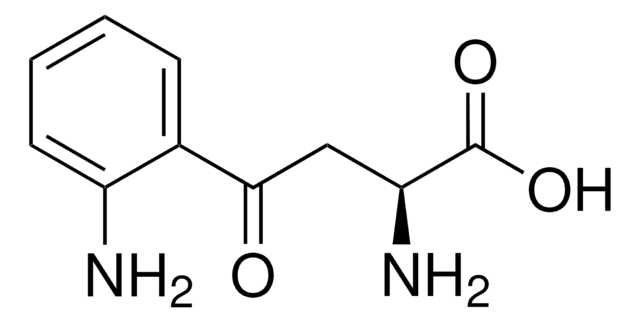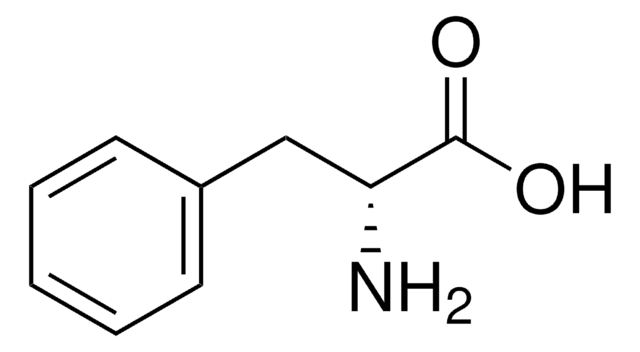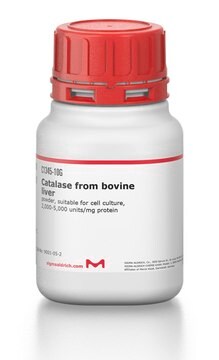Kluczowe dokumenty
860646
1-Methyl-DL-tryptophan
97%
Synonim(y):
1-Methyl-DL-tryptophan, 1-Methyltryptophan, 2-Amino-3-(1-methyl-1H-indol-3-yl)propanoic acid, 2-Amino-3-(1-methyl-1H-indol-3-yl)propanoicacid, 2-Amino-3-(1-methylindol-3-yl)propanoic acid, DL-1-Methyltryptophan, N′-Methyl-DL-tryptophan
About This Item
Polecane produkty
Poziom jakości
Próba
97%
Formularz
solid
mp
250 °C (dec.) (lit.)
grupa funkcyjna
amine
carboxylic acid
ciąg SMILES
Cn1cc(CC(N)C(O)=O)c2ccccc12
InChI
1S/C12H14N2O2/c1-14-7-8(6-10(13)12(15)16)9-4-2-3-5-11(9)14/h2-5,7,10H,6,13H2,1H3,(H,15,16)
Klucz InChI
ZADWXFSZEAPBJS-UHFFFAOYSA-N
Powiązane kategorie
Zastosowanie
Kod klasy składowania
11 - Combustible Solids
Klasa zagrożenia wodnego (WGK)
WGK 3
Temperatura zapłonu (°F)
Not applicable
Temperatura zapłonu (°C)
Not applicable
Środki ochrony indywidualnej
Eyeshields, Gloves, type N95 (US)
Wybierz jedną z najnowszych wersji:
Masz już ten produkt?
Dokumenty związane z niedawno zakupionymi produktami zostały zamieszczone w Bibliotece dokumentów.
Klienci oglądali również te produkty
Global Trade Item Number
| SKU | GTIN |
|---|---|
| 860646-1G | 4061833033449 |
| 860646-250MG | 4061833483947 |
Nasz zespół naukowców ma doświadczenie we wszystkich obszarach badań, w tym w naukach przyrodniczych, materiałoznawstwie, syntezie chemicznej, chromatografii, analityce i wielu innych dziedzinach.
Skontaktuj się z zespołem ds. pomocy technicznej